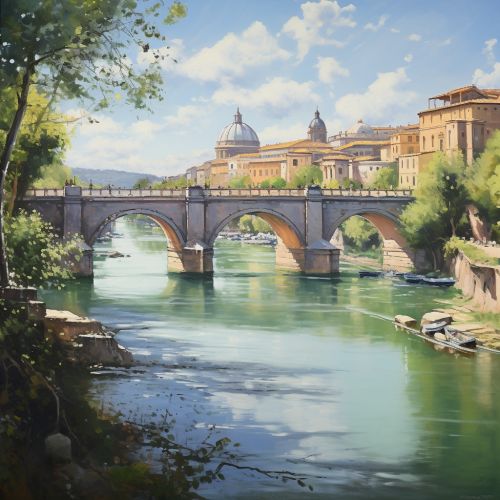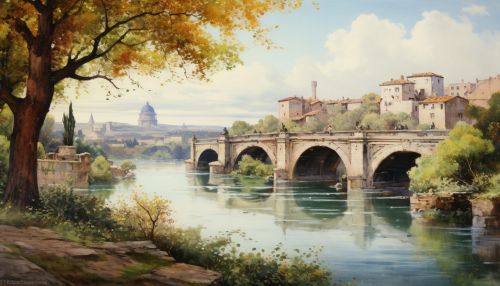Ancient Rome
Origins and Founding
Ancient Rome's history begins with its legendary founding in 753 BC by Romulus, its first king. The city was initially a small settlement on the banks of the Tiber in the Italian peninsula. According to Roman mythology, Romulus and Remus were the sons of the god Mars and the priestess Rhea Silvia. The twins were abandoned on the Tiber's banks but were rescued by a she-wolf who cared for them until a shepherd found and raised them.


Monarchy Period (753–509 BC)
The first period of Roman history is known as the Monarchy Period, which lasted from the city's founding in 753 BC until 509 BC. During this time, Rome was ruled by seven kings, beginning with Romulus. The kings, elected by the people, held the highest authority in both civil and religious matters. The last king, Tarquin the Proud, was overthrown following a revolt led by Lucius Junius Brutus, marking the end of the Monarchy Period and the beginning of the Republic.
Republic Period (509–27 BC)
The Republic Period was a time of great expansion and growth for Rome. The republic was governed by two consuls, elected annually by the citizens and advised by a senate. Rome's influence expanded throughout the Italian peninsula, and it became a major power in the Mediterranean region. The republic was marked by social and political strife, leading to the establishment of the Roman legal system and the Roman military. The Republic Period ended with the rise of Julius Caesar, who was declared dictator for life in 44 BC.
Imperial Period (27 BC–476 AD)
The Imperial Period, also known as the Roman Empire, began in 27 BC when Augustus was declared the first Roman Emperor. The empire expanded its territory significantly, reaching its greatest extent under Emperor Trajan in 117 AD. The empire was marked by periods of relative peace, such as the Pax Romana, and periods of decline and instability. The fall of the Western Roman Empire in 476 AD marked the end of Ancient Rome and the beginning of the Middle Ages in Europe.
Society and Culture
Roman society was highly structured, with a clear distinction between the patricians (nobility) and the plebeians (common people). The Roman legal system, the basis for many modern legal systems, was advanced for its time. The Romans were also known for their architectural and engineering feats, including the construction of roads, aqueducts, and buildings. Roman culture had a significant influence on the development of Western art, literature, and philosophy.
